Maggan Hub pilot project in the Openlab space
During the summer, the new KTH initiative Maggan hub held its first pilot – at Openlab’s premises!
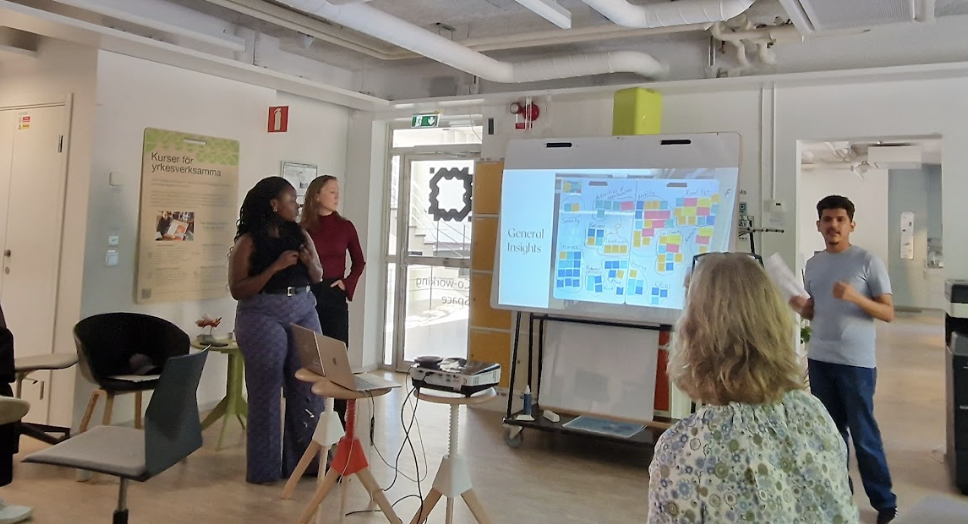
Challenge-Driven Education for Sustainability
Maggan hub is a project at KTH addressing societal and sustainability challenges through challenge-driven education.
Project manager Lena Gumaelius describes Magganhubben as a lab for collective transformation, with the aim of working with societal challenges, collaboration, and transition towards a significantly more sustainable society. In the pilot program, students with diverse backgrounds explore challenges about empowering rural communities.
The project wishes to challenge the traditional view of learning and problem-solving that still prevails in academia. At KTH, technical solutions often take center stage.
“To reach new solutions, we need to think and work in new ways,” says Lena, emphasizing that societal and sustainability challenges require us to look at all three aspects of sustainability (social, ecological, and economic sustainability).
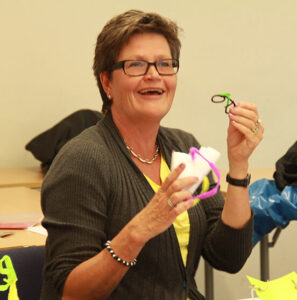
The Maggan hub is named after its initiator Margareta “Maggan” Norell, KTH Professor Emeritus, who received KTH’s prize for industrial collaboration in 2022. The prize money associated with this prestigious award enabled the Maggan hub and its first pilot program, where students have the opportunity to develop skills through challenge-driven projects for a green and just future.
Learning Across Borders

The hub is coordinated by KTH Global Development Hub, GDH. Given the focus of GDH’s on partnerships and exchange with African universities, Maggan hub aims to explore challenges and solutions that can be applied in both a Swedish and an African context, thereby promoting cross-cultural understanding and collaboration.
Out of over 60 applicants, twelve dedicated students were selected to participate in the pilot program during the summer of 2024. Several of the participants are students from GDH’s partner universities in Africa (Strathmore University in Kenya, University of Dar es Salaam in Tanzania, University of Rwanda, and Botho University in Botswana).
Magnus Eneberg, who leads the program, has seen an energy, openness, and engagement among the participants. Magnus expresses that the interactions and discussions between students from different backgrounds and collaboration with industry representatives have created interesting perspective meetings and a valuable dimension to the pilot program.
Strengthening Rural Areas in Sweden and Africa
Based on a broad challenge to empower rural areas, students have investigated needs, drivers, challenges, and attitudes related to living and working in rural areas in both Sweden and other parts of the world. Despite differing conditions, the teams have discovered many similarities between the countries they focused on (Sweden, Tanzania, Botswana, China, Lesotho, etc.). Through Maggan hub’s collaboration with the vehicle manufacturer Scania, the forest research institute Skogforsk, and the environmental institute SEI, students were tasked with examining areas related to transport, electrification, and energy. Interviews, surveys, and observations were part of the students’ repertoire to deeply understand the challenges experienced by their target groups.
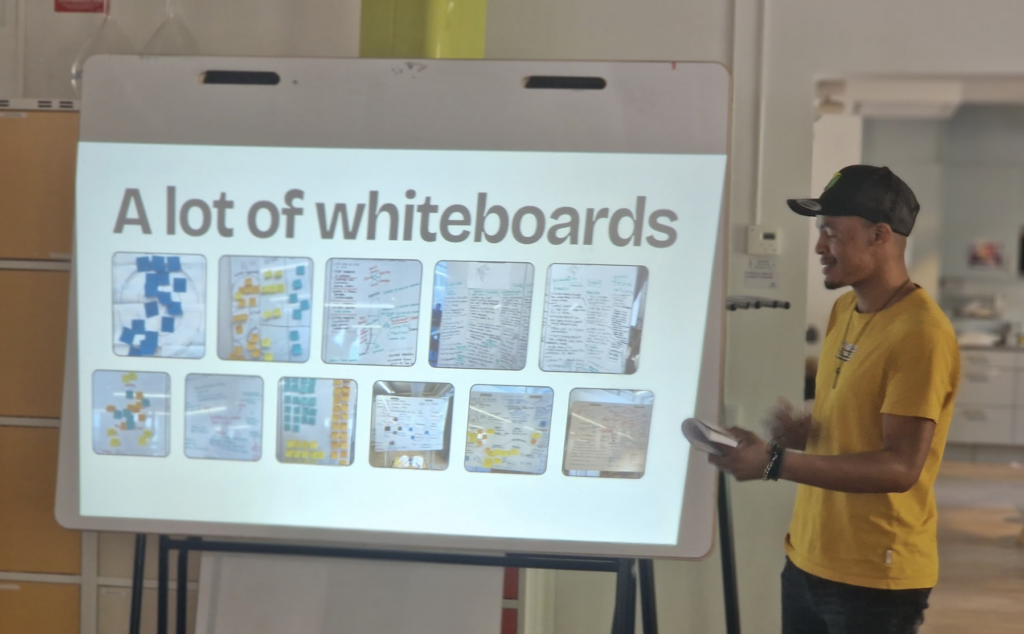
On the 28th of June the Maggan hub students held their final presentations where partners and mentors were able to share insights, conclusions, challenge focuses, and solution concepts. Several of the concepts involved bringing people together around topics like food, energy production, and learning about local rural conditions.
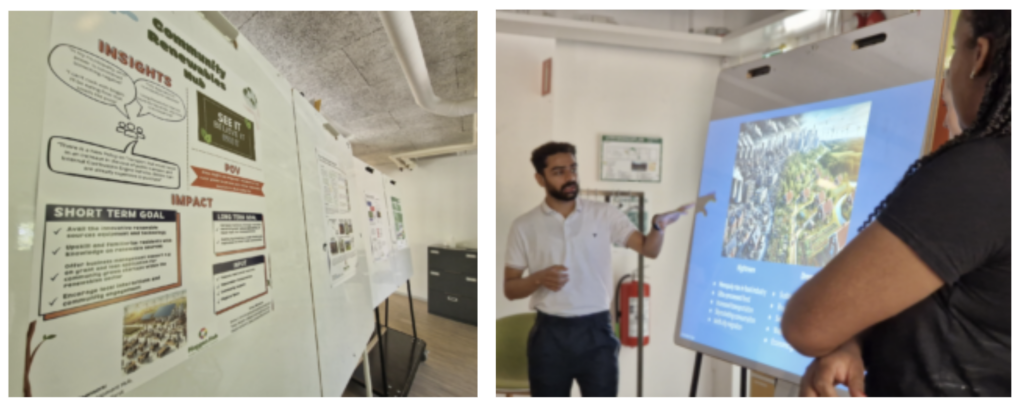
“The most important result of the program is not the solutions and concepts that the students develop, the most important is the discussions and meetings that take place,” says Magnus, highlighting the need for more cross-cultural meetings and deep dives into problems, especially within the business community.
The Connection to Openlab
The points of contact between Maggan hub and Openlab are many. Besides the similarities in work and approach – working with challenge-driven and project-based education to find value-creating solutions to real-world societal challenges – several of the participants in the hub’s pilot project are familiar faces, as alumni from Openlab’s master’s course, Innovations for Societal Challenges. Additionally, Maggan Norell was one of those who actively helped shape the foundation of Openlab, over 10 years ago.
Therefore, Maggan hub’s project managers felt it would be great for the program to take place at Openlab’s premises. Equally obvious has it been for Openlab to support the initiative and open up the space where our master’s students, who are now on summer break, usually work.
At Openlab, we encourage initiatives like Maggan hub, which prepare students to face the complex societal challenges of today and the future, and also strengthen academia’s ability to contribute with understanding and concrete user-centered proposals that benefit society.
More About Maggan hub
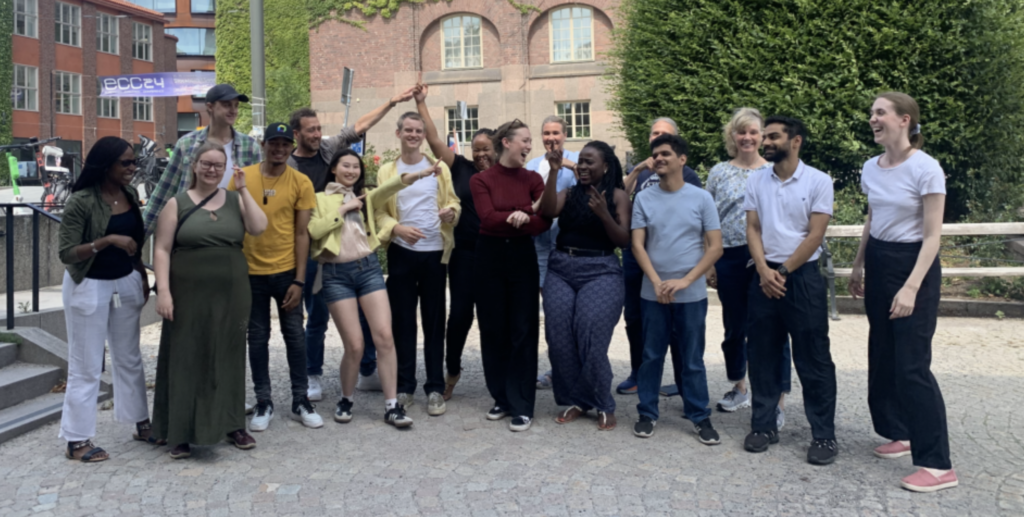
Would you like to know more about Maggan hub at KTH?
Contact Magnus Eneberg (meneberg@kth.se), Lena Gumaelius (lenagu@kth.se), or Erika Svensson Rössner (erika2@kth.se) for more information.
Further reading, in Swedish: KTH’s article Tanzania modell för ny pedagogisk satsning.